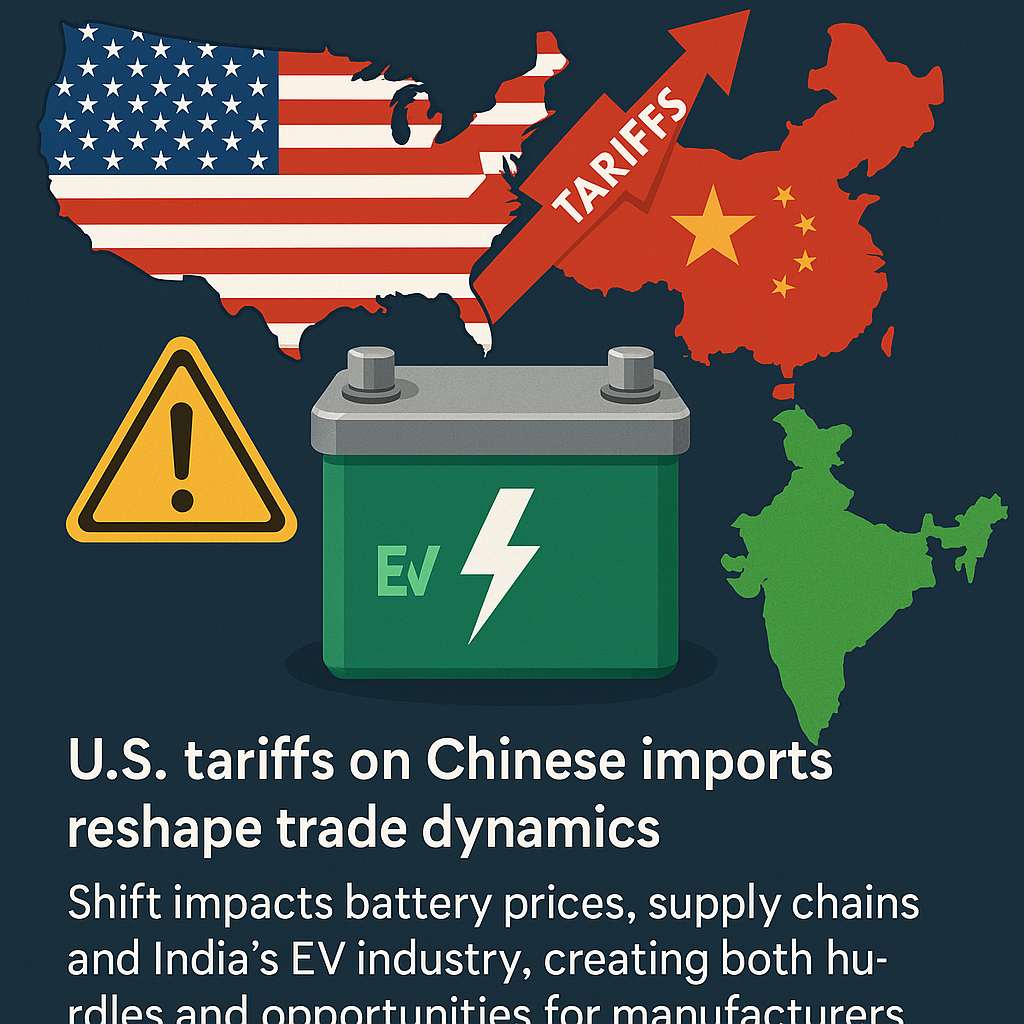
The landscape of electric vehicle (EV) battery manufacturing is undergoing a seismic shift as global trade policies evolve. With the recent announcement of higher tariffs on Chinese exports by the United States, significant changes are expected in battery pricing, supply chain dynamics, and market strategies. These developments could create new opportunities for emerging markets such as India while also presenting hurdles for domestic manufacturers.
Tariff Revisions and Their Ripple Effects
The U.S. administration’s decision to impose steep tariffs on Chinese EV batteries and related components is expected to reshape the global supply chain. With an added 25% tariff on all EV batteries imported from China and additional duties on Chinese goods across various sectors, manufacturing costs for American companies are set to rise.
Given the central role China plays in battery production, accounting for a significant share of global lithium-ion battery exports, these tariffs could drive foreign manufacturers to look for alternative markets to offload their surplus stock. This shift might lead to a substantial influx of low-cost EV batteries in regions like India, potentially disrupting local players who are still striving to build a self-sustaining supply chain.
Implications for the Indian EV Industry
India, a rapidly growing market for electric mobility, is poised to witness both benefits and challenges due to these tariff adjustments. With the government’s strong push towards green energy, India has been investing heavily in battery manufacturing capabilities, supported by initiatives such as the Production-Linked Incentive (PLI) scheme worth ₹18,100 crore. This initiative aims to enhance domestic production and reduce dependency on imports, particularly from China.
However, with the U.S. tightening its grip on Chinese imports, manufacturers in China, South Korea, and Japan may flood the Indian market with cheaper batteries. While this could benefit original equipment manufacturers (OEMs) looking for cost-effective solutions, it also raises concerns for Indian companies like Exide Industries, Amara Raja Energy & Mobility Ltd, and Reliance’s new battery ventures. These firms have been making significant investments in building local capacity and could face stiff price competition from international suppliers offering batteries at lower rates.
Navigating a Changing Market
The evolving trade scenario presents both opportunities and obstacles. On the one hand, the affordability of EV batteries could accelerate EV adoption in India, driving higher sales and reducing the overall cost of ownership for consumers. On the other hand, Indian manufacturers might struggle to match the competitive pricing of imported alternatives unless they ramp up efficiency and innovate rapidly.
Additionally, industry experts suggest that India’s policymakers may need to introduce measures to protect domestic players from being undercut by cheap imports. Potential steps could include increased import duties, revised subsidy structures, or greater support for local research and development in battery technology.
Future Prospects: A Balancing Act
The global EV industry is at a crossroads, where geopolitical and economic shifts are dictating the direction of market trends. While established economies such as the U.S. and China engage in tariff battles, emerging economies like India must tread carefully to balance affordability, competitiveness, and sustainability.
Indian automakers and battery manufacturers must work towards technological advancements and strategic partnerships to stay ahead. With ongoing developments in battery chemistry and energy storage solutions, companies focusing on long-term innovation rather than short-term gains will likely emerge stronger in this evolving marketplace.
As the world transitions toward cleaner mobility solutions, the road ahead is laden with uncertainties. Yet, it also offers a unique chance for India to cement its position as a key player in the global EV supply chain by leveraging policy support, fostering innovation, and ensuring market stability amid shifting global trade dynamics.

